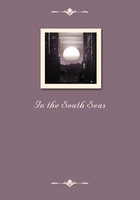
第60章 TRAITS AND SECTS IN THE PAUMOTUSTHE MOST(2)
The race seems in a fair way to survive.From fifteen islands,whose rolls I had occasion to consult,I found a proportion of 59births to 47deaths for 1887.Dropping three out of the fifteen,there remained for the other twelve the comfortable ratio of 50births to 32deaths.Long habits of hardship and activity doubtless explain the contrast with Marquesan figures.But the Paumotuan displays,besides,a certain concern for health and the rudiments of a sanitary discipline.Public talk with these free-spoken people plays the part of the Contagious Diseases Act;in-comers to fresh islands anxiously inquire if all be well;and syphilis,when contracted,is successfully treated with indigenous herbs.Like their neighbours of Tahiti,from whom they have perhaps imbibed the error,they regard leprosy with comparative indifference,elephantiasis with disproportionate fear.But,unlike indeed to the Tahitian,their alarm puts on the guise of self-defence.Any one stricken with this painful and ugly malady is confined to the ends of villages,denied the use of paths and highways,and condemned to transport himself between his house and coco-patch by water only,his very footprint being held infectious.
Fe'efe'e,being a creature of marshes and the sequel of malarial fever,is not original in atolls.On the single isle of Makatea,where the lagoon is now a marsh,the disease has made a home.Many suffer;they are excluded (if Mr.Wilmot be right)from much of the comfort of society;and it is believed they take a secret vengeance.The defections of the sick are considered highly poisonous.Early in the morning,it is narrated,aged and malicious persons creep into the sleeping village,and stealthily make water at the doors of the houses of young men.Thus they propagate disease;thus they breathe on and obliterate comeliness and health,the objects of their envy.Whether horrid fact or more abominable legend,it equally depicts that something bitter and energetic which distinguishes Paumotuan man.
The archipelago is divided between two main religions,Catholic and Mormon.They front each other proudly with a false air of permanence;yet are but shapes,their membership in a perpetual flux.The Mormon attends mass with devotion:the Catholic sits attentive at a Mormon sermon,and to-morrow each may have transferred allegiance.One man had been a pillar of the Church of Rome for fifteen years;his wife dying,he decided that must be a poor religion that could not save a man his wife,and turned Mormon.According to one informant,Catholicism was the more fashionable in health,but on the approach of sickness it was judged prudent to secede.As a Mormon,there were five chances out of six you might recover;as a Catholic,your hopes were small;and this opinion is perhaps founded on the comfortable rite of unction.
We all know what Catholics are,whether in the Paumotus or at home.
But the Paumotuan Mormon seemed a phenomenon apart.He marries but the one wife,uses the Protestant Bible,observes Protestant forms of worship,forbids the use of liquor and tobacco,practises adult baptism by immersion,and after every public sin,rechristens the backslider.I advised with Mahinui,whom I found well informed in the history of the American Mormons,and he declared against the least connection.'POUR MOI,'said he,with a fine charity,'LESMORMONS ICI UN PETIT CATHOLIQUES.'Some months later I had an opportunity to consult an orthodox fellow-countryman,an old dissenting Highlander,long settled in Tahiti,but still breathing of the heather of Tiree.'Why do they call themselves Mormons?'Iasked.'My dear,and that is my question!'he exclaimed.'For by all that I can hear of their doctrine,I have nothing to say against it,and their life,it is above reproach.'And for all that,Mormons they are,but of the earlier sowing:the so-called Josephites,the followers of Joseph Smith,the opponents of Brigham Young.
Grant,then,the Mormons to be Mormons.Fresh points at once arise:What are the Israelites?and what the Kanitus?For a long while back the sect had been divided into Mormons proper and so-called Israelites,I never could hear why.A few years since there came a visiting missionary of the name of Williams,who made an excellent collection,and retired,leaving fresh disruption imminent.Something irregular (as I was told)in his way of 'opening the service'had raised partisans and enemies;the church was once more rent asunder;and a new sect,the Kanitu,issued from the division.Since then Kanitus and Israelites,like the Cameronians and the United Presbyterians,have made common cause;and the ecclesiastical history of the Paumotus is,for the moment,uneventful.There will be more doing before long,and these isles bid fair to be the Scotland of the South.Two things I could never learn.The nature of the innovations of the Rev.Mr.Williams none would tell me,and of the meaning of the name Kanitu none had a guess.It was not Tahitian,it was not Marquesan;it formed no part of that ancient speech of the Paumotus,now passing swiftly into obsolescence.One man,a priest,God bless him!said it was the Latin for a little dog.I have found it since as the name of a god in New Guinea;it must be a bolder man than I who should hint at a connection.Here,then,is a singular thing:a brand-new sect,arising by popular acclamation,and a nonsense word invented for its name.